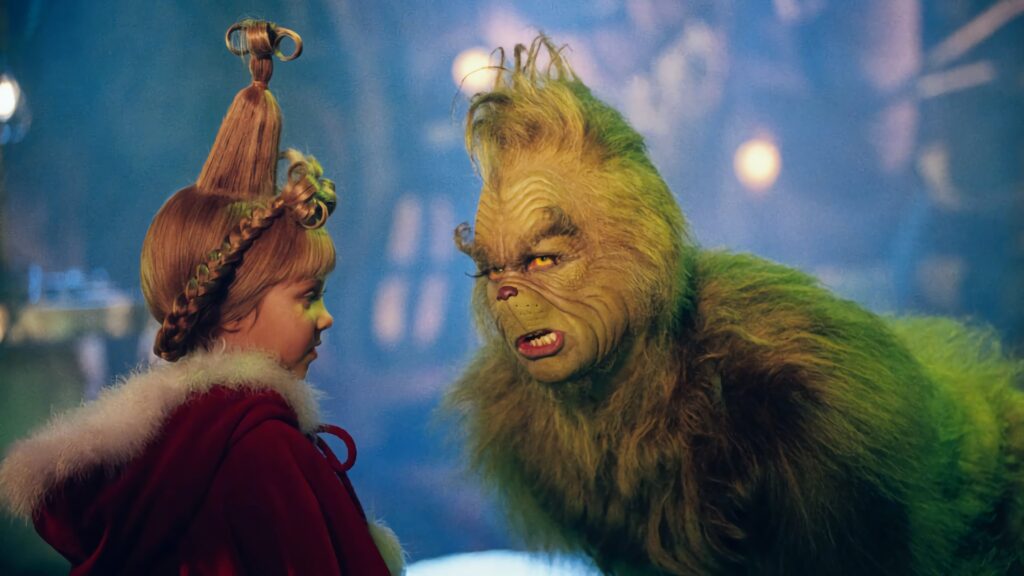The holiday season is in full swing and we’re taking a deep dive into some of these favorite Christmas movies and Holiday tv episodes. If you haven’t seen any of the following we encourage you to check them out with your families.
It’s a Wonderful Life (1946)
How did a movie that focuses on one man’s wish to see the world as if he was never born become a popular and beloved Christmas film? By complete accident. The film, based on the novel “The Greatest Gift” by Philip Van Doren Stern, found its way to Frank Capra after the end of the Second World War. In 1945, Capra returned from the war and decided to make his first film closely related to what he experienced filming soliders. The film which stars Jimmy Stewart deals with extremely tough and heavy topics including suicide. Stewart himself had to be convinced to join the project because he felt it was too much after returning home from the war. The film follows the life of George Bailey as he gives up his own personal aspirations to help his community. One Christmas Eve, George contemplates suicide but is stopped when his guardian angel Clarence appears and allows him to view the people in his life as if he had not been born. When it was released in 1946, the film was a flop making only 6.3 million and just barely breaking even.
In 1947, Republic Pictures bought the licensing rights to the film and in 1956 it began playing on television. Then in 1974, the copyright expired and the movie entered into public domain because Republic Pictures forgot to renew the film. As soon as the movie was free to use and that companies didn’t have to pay royalties, Networks started playing it whenever they wanted. In 1993 after the ruling of Stewart v. Abend, Republic Pictures called each network to remove the film off the air. Shortly after, Republic Pictures struck a deal with NBC and now the film is played every year on Christmas Eve.
The Nanny (1998)
The Hanukkah Story from the 90s sitcom, The Nanny was one of the first shows to have a centralized Jewish character and frequently show the audience elements of the Jewish faith. Fran Drescher said in a recent interview that she had to convince the studio to keep Fran Fine Jewish and we are certainly glad she did.
This episode comes during the show’s final season in 1998 after Fran marries Mr. Sheffield. Fran is excited to share with her new family her traditions on the first night of Hanukkah, only to find out that Max, CC and Gracie are leaving to go to Massachussetts. Similar to most sitcoms, shenanigans occur and by the end the family is together. The Hanukkah Story shows Fran making latkas, playing driedal with her grandmother along with telling the other characters the about the rededication of the Second Temple of Jersusalem. The episode incorporates the original story of the candle oil lasting 8 days to the Sheffield car having enough heat for only one hour but lasting for 8.

The Nightmare Before Christmas (1993)
This stop animated classic is played for the two most popular holidays of the year, Halloween and Christmas. The Tim Burton and Henry Selick film is set during the time between the major holidays. While the majority of the fans believe that this is a Halloween movie that has Christmas sprinkled in, we are focusing on some of the effects that Christmas Town has on our loveable Jack.
After Jack gets blown into Christmas Town, we get a song filled with his excitement and joy of seeing the bright colors and other aspects in “What’s This”
What’s this? What’s this?There’s color everywhereWhat’s this?There’s white things in the airWhat’s this?I can’t believe my eyesI must be dreaming
Danny Elfman
Upon returning home, Jack is eagerly excited to share the wonder he experienced to his friends and while at first, the townspeople aren’t too invested until mid way through the film. Once Jack decries that “Christmas will be ours!” we get another song that showcases the other Halloween residents having Christmas spirit while making the various toys. Throughout the movie, we see the residents of Halloween Town embrace the fun that other holidays can bring.
How the Grinch Stole Christmas (2000)
A departure from the original story, Ron Howard’s How the Grinch Stole Christmas portays the Whos as capitalistic and self absorbed. The film, which celebrated its 20th anniversary last month elongates the classic tale and adds more character growth for the titular Grinch. Cindy Lou Who is acting as an amateur documentarian as she seeks out to find the cause of the Grinch’s resentment towards the holiday by talking to people from his childhood. While talking to Martha played by Christine Baranski, Cindy learns that now prominent people in Whoville teased him until the breaking point where he turns against the Yuletide season and the Whos.
In the late 1950s, Dr. Seuss was drafting the book when he noticed that people were getting too caught up in the commercialization of the holidays. Soon after experiencing this outlook, Seuss created the Grinch as a visusalization of this change. Howard combines Seuss’s concern into Cindy Lou as she makes it her mission to help the Grinch come back to society and together they can change the outlook of the remaining townspeople.

Blackish, Stuff
Following themes of the Grinch is one of the holiday episodes from the hit sitcom Black-ish. This episode follows the Johnson family as they celebrate Christmas after Dre played by Anthony Anderson agrees with his father (Laurence Fishbourn) that the kids need to experience the holiday without excessive materials. Throughout the episode, we see the kids try and to convince their parents to let them have presents while Pops reminds them to be old school. Tracee Ellis Ross’s Bow decides to volunteer which both the adult members of the Johnson family question as well as Dre’s coworkers. While this is portrayed in a mixed review, Bow embraces the holiday trope for the need to help others and in a realistic reaction is met by the other characters through the confusion. Dre almosts caves into the kids’ quest for more gifts but is still surprised that they are all still unappreciative. At the conclusion of the episode both Pops and Dre talk about the views of parenting during the holidays and the kids tell both Bow and Dre how much they mean to them.
Abbott Elementary (2022)
On the second season winter finale and the holiday aspects are presented as the B plot. While Janine, Gregory and Ava are off on the main plot, Barbara and Melissa are keeping their work tradition before the school break. Feeling bad for Jacob, Barbara invites him to the dinner. However, Jacob’s grinch like attitude takes the dinner to a rough start and compares the idea of the holiday to Charles Dickinson’s A Christmas Carol as it takes what is supposed to be a simple holiday into a materialistic frenzy. A talk with Mr. Johnson about not bringing people down during the festivites, Jacob apologizes to the women. Jacob’s reason of being rude is that the holidays end up with arguing, fights and overall unpleasantness.
Elf (2003)
Either one of the best or one of the worst Christmas movies depending on who you talk too. It is however, one of the most quotable Christmas movies in recent years. In this movie, we follow Buddy the Elf as he learns about family, experiencing love and finding acceptance. Buddy’s childlike wonder on all major themes of Christmas make this an easy watch.
Everybody Hates Chris (2007)
Based on Chris Rock’s teenager years, a young Chris is tasked with doing something nice for his community. Chris throughout the episode tries to help his friend Kill Moves. Meanwhile, Chris’s father (Julius) tells the viewer that he didn’t get his usual bonus and buying things for the holidays is going to be tough. On the street he meets a man talking about Kwanzaa and the episode gives a brief overview. When Julius tells the family his idea about celebrating Kwanzaa instead of Christmas, Chris’s mother asks if he is being cheap. The episode does a wonderful job of showing the different holidays.

Little Women (1994 and 2019)
In both versions of the famous novel by Louisa May Alcott, the usage of the holidays brings significant changes to the March sisters. The first Christmas we see in the movie, Marmme tells the girls that they should give up their meal to help a sick family. Upon returning home, they are greeted by a feast provided by the Lawrences across the street. Although, the sisters didn’t initally want to give up their Christmas morning, when they reached the Hummel family their attitudes changed. Christmas appears a few more times in the films which highlights Mr. March coming home from the war and Beth’s final christmas before passing away shortly after.
Little Women in 1994, set the way other holiday themese movies would include such as the joy of coming together, romance and forgiveness.


Recent Comments